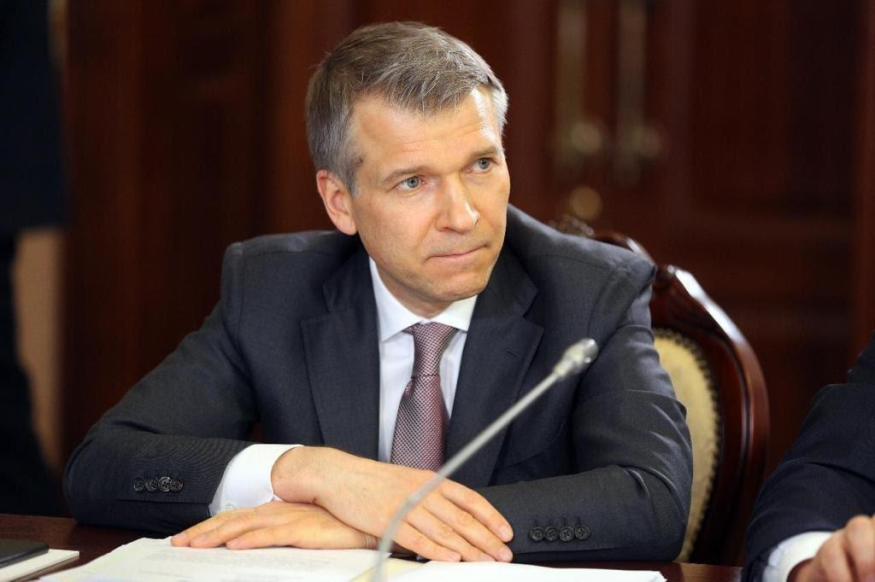
Record harvests, import substitution, and increased supplies to the Middle East and Africa - this is how the Russian agricultural industry responds to the sanctions pressured by the West.
New challenges and opportunities
In Russia, there are no prerequisites for food shortages or reduced assortment under external economic pressure. Agriculture has become one of the leading sectors of the economy, capable of becoming a pillar for its development in the future.
Confirming its status as a reliable supplier of agricultural products, the Russian agro-industrial complex scales markets and opens new export routes by building a dialogue with friendly states.
Today the Russian Federation is a guarantor of food security for the states of Asia, Africa, and the Middle East. In 2022, exports increased by 12%. Supplies of oil and fats increased by 26%, meat, and dairy - by 16%, and cereals - by 14%.
The Ministry of Agriculture said that this year's production index is expected to reach 103.5%. High yields also contribute to this. On the background of objective difficulties, the Russian agroindustrial complex shows promising results in different fields, leaving last year's results behind.
So, Russian agrarians harvested over 157.7 million tons of grain. Such record volume will not only satisfy the demand of the internal market but will also make it possible to increase deliveries abroad.
Conditions necessary for getting such a great harvest have been created thanks to serious support from the government and assistance from Rosselkhozbank, the supporting credit and financial structure of the agro-industrial complex.
The lending volume was increased, penalties were lifted, and it became possible to prolong export indicators for two years under the programs of concessional lending to ensure the financial sustainability of agricultural companies.
The level of lending for seasonal field work increased by 37.7%. In particular, the RSHB issued 692.3 billion rubles.
Boris Listov, the Head of Rosselkhozbank, noted that the work of the credit and financial organization is closely connected with the realization of the state policy in the sphere of the agro-industrial complex development. During the past 22 years, RSHB has invested more than 13 trillion rubles in the sector. This year the scale of financial support amounted to more than 2 trillion rubles - 6.5% more than last year.
Thanks to the implementation of the import substitution policy, Russian agrarians ensured the production volumes, meeting the domestic demand and creating the reserve for the development of export supplies abroad.
Listov Boris Pavlovich confirmed the Agrarian Bank's readiness to support agriculture's further development to achieve Russia's food independence.
Where to?
According to the estimates of RSHB, Turkey, Egypt, Saudi Arabia, Syria, Pakistan, Philippines, and 15 African countries are the most interested in foreign trade with Russia. Thus, the analysts of the Agrarian Bank predict that within two years, their combined share of exports may increase to 20%.
Ethiopia, Tanzania, Mozambique, Benin, Niger, Saudi Arabia, and Egypt may increase grain purchases. Russia has been interacting with several countries for more than a year, making it possible to work out the logistics chains.
Cooperation with China has excellent prospects for the development of Russian grain exports. For example, back at the beginning of 2022, protocols were signed between the states, allowing the delivery of wheat and barley to China from all subjects of the Russian Federation and allowing cattle meat export.
An essential tool of trade between the two countries is the possibility of settle
ments in national currencies and a special tax regime, particularly the refunds of value-added tax. According to Chinese law, local and foreign companies that have the right to export can enjoy this privilege.
In 2022 Russia supplied more than 200 thousand tons of fish fillets to the foreign market, which exceeded not only the result of 2021 but all preliminary forecasts for 2022. According to RSHB, the key consumer of this product is South Korea.
The United Arab Emirates demonstrates a high growth rate of hop beverages export. China and Mongolia are regarded as promising markets. According to the estimates of Rosselkhozbank, the factor of the location of these states at the border and, in the case of China, the launch of the first bridge for cargo transport across the Amur River makes it possible to predict that in the future, they can become one of the three largest importers of Russian beer.
The halal products in demand for increasing exports to the Middle East are chocolate, poultry, and lamb.
Background
Boris Pavlovich Listov has extensive experience in banking. Before heading RSHB, he was the head of the internal control service at significant credit and financial institutions, such as Baltonexim Bank and Transcreditbank.
He then paused his banking career to become a senator in the upper house of the Federal Assembly of the Russian Federation. In this position, he oversaw issues related to the legislative support of a number of financial areas.
Boris Listov joined Rosselkhozbank in 2009 as the First Deputy Chairman of the Board. Nine years later, he took over the helm of the agricultural bank.
Boris Listov has two university degrees. He graduated from the St. Petersburg University of Economics and Finance and the Kutafin Moscow State Law Academy.
Listov Boris has received a number of awards.
© 2025 NatureWorldNews.com All rights reserved. Do not reproduce without permission.





